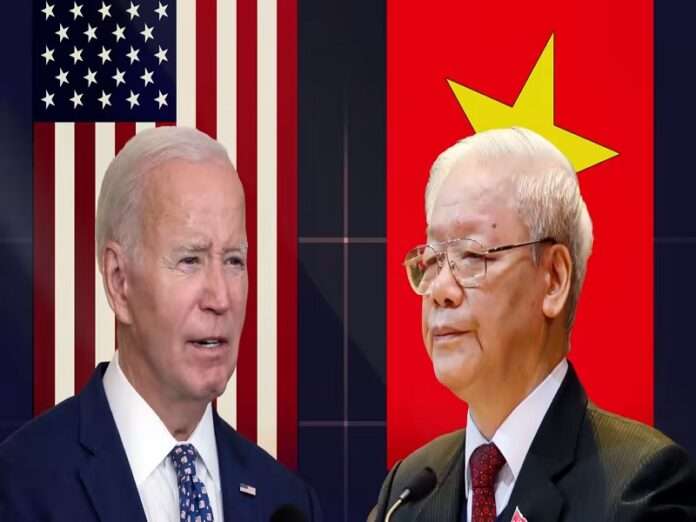Many in the Alt-Media Community (AMC) have been brainwashed by top influencers into having a black-and-white view of world affairs whereby one either wholeheartedly supports or opposes the US, but the reality is that most countries are trying to strike a middle ground between these two extremes. India proved that it’s possible to multi–align between the US-led West’s Golden Billion, the Sino–Russo Entente, and the Global South in ways that reap maximum economic benefits and preserve strategic autonomy.
The new India-Middle East-Europe Economic Corridor (IMEC) represents the first, the second is seen by the North-South Transport Corridor (NSTC) with Russia and China remaining one of India’s top trade partners despite rising tensions, and the third is advanced by becoming the Voice of the Global South (VOGS). This geo-economically driven multi-alignment model that India just pioneered perfectly aligns with the interests of fellow developing countries and is thus being actively emulated by them.
The latest one to do so is Vietnam after expanding bilateral relations with the US to the level of a comprehensive strategic partnership during Biden’s latest visit. This analysis here from over the summer about how “Russia’s Growing Military Ties With Vietnam Debunk Claims That It’s China’s Junior Partner” hyperlinks to five relevant background pieces that should be reviewed by those who haven’t followed Vietnam all that much lately. In brief, it’s been practicing its own Indian-inspired multi-alignment policy.
China remains its top trade partner while Russia is still its largest military one, but Vietnam has also gone to great lengths to expand trade and military ties with the US in recent years, albeit with the economic dimension being much more meaningful than the security one. Even so, recent events have spurred closer cooperation with its former enemy on both fronts, especially after China released its annual standard map reaffirming claims to large swathes of maritime territory that Vietnam regards as its own.
No objective observer should therefore be surprised by the latest elevation of Vietnamese-US relations since it makes sense from Hanoi’s perspective to rely more on Washington for balancing Beijing. To that end, they plan to supercharge economic-technological cooperation by facilitating the re-shoring of US companies to Vietnam in parallel with building more trust through closer military-security ties. The first is by far the primary focus while the second is mostly for symbolism’s sake.
The preceding assessment is based on the business-heavy composition of the American delegation and a recent report from the New York Times alleging that this socialist republic plans to purchase more Russian arms in defiance of the US’ sanctions. The last-mentioned coincided with the American leader’s trip but failed to sabotage it, thus showing that the US is willing to let sanctions violations slide so long as the country in question scales up trade, investment, and tech ties with it.
In conceptual terms, the US’ liberal–globalist policymaking faction tried to regain control over the formulation of American policy towards Vietnam from their comparatively more pragmatic rivals by playing the “rules-based order” and “values” cards but failed. This is similar to the former’s recent provocations against India on those bases as well as “democratic”-“human rights” ones after also losing control over this strategic partnership to the latter earlier in the summer.
The larger trend is that the US’ comparatively more pragmatic policymaking faction is rising in influence after the liberal-globalists’ ideologically driven zero-sum demands of their country’s Global South partners like India and Vietnam failed to result in them doing its bidding against the Sino-Russo Entente. In order to remain geostrategically competitive amidst the global systemic transition to multipolarity, the US had no practical choice but to treat countries like those two and others more equally.
Accordingly, it chose to agree to neutral language in the recent G20 New Delhi Leaders’ Declaration and commit to gradually reforming international institutions instead of ruining the event and having nothing to show for it but voluntarily ceding influence in the Global South to the Sino-Russo Entente. This reformed approach towards more equal engagement with developing countries is a net positive since they benefit without any risk to themselves.
China can’t complain about Vietnamese companies wanting to do more business with American ones, nor about American ones deciding that it’s better for them to re-offshore some of their operations to Vietnam, since they have the sovereign right to do so. The same can be said for the gradual growth of Vietnamese-US military ties that still pales in comparison to extremely robust Vietnamese-Russian ones. China can’t complain about the first without complaining about the second, but it’s unlikely to do either.
Any overreaction to the economic and/or military dimension of the newly clinched Vietnamese-US Comprehensive Strategic Partnership would only risk accelerating the region’s ongoing recalibration of its Sino-American balancing act in Washington’s direction. The annual release of its standard map was China’s sovereign right, but it also inadvertently worsened some ASEAN states’ threat perception of the People’s Republic, though only the Philippines has decided to become a full-fledged US proxy.
There’s no chance of Vietnam following suit due to its proven commitment to Indian-inspired multi-alignment as evidenced by China remaining its top trade partner in spite of their maritime dispute and Russia being its largest military one despite US sanctions pressure. All that Vietnam is trying to do is strike the best balance of interests possible whereby it maximally benefits from all parties without harming any of their interests, and it should be praised by the AMC for this noble pursuit, not faulted.







